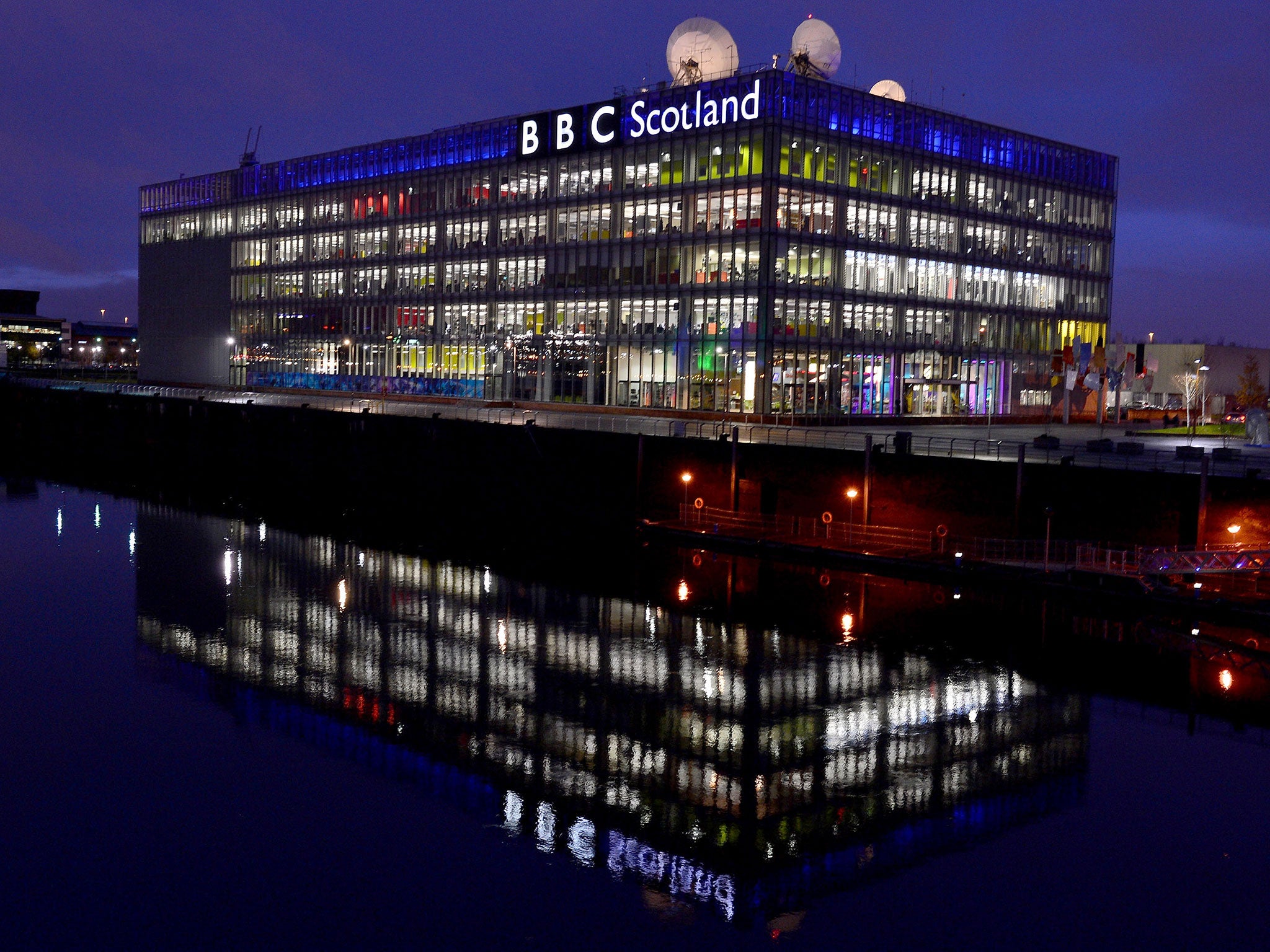BBC Scotland should given power to commission its own programmes and set its own budgets, MSPs argue
Move would address concerns that the national broadcaster has a 'London bias'

Your support helps us to tell the story
From reproductive rights to climate change to Big Tech, The Independent is on the ground when the story is developing. Whether it's investigating the financials of Elon Musk's pro-Trump PAC or producing our latest documentary, 'The A Word', which shines a light on the American women fighting for reproductive rights, we know how important it is to parse out the facts from the messaging.
At such a critical moment in US history, we need reporters on the ground. Your donation allows us to keep sending journalists to speak to both sides of the story.
The Independent is trusted by Americans across the entire political spectrum. And unlike many other quality news outlets, we choose not to lock Americans out of our reporting and analysis with paywalls. We believe quality journalism should be available to everyone, paid for by those who can afford it.
Your support makes all the difference.The BBC’s Scottish arm should be given the power to commission its own programmes and set its own budgets in order to address concerns that the national broadcaster has a “London bias”, a committee of MSPs has suggested.
Scottish production companies are often put at a disadvantage when trying to win commissions because the “ultimate decision making” on new programmes is taken in London, Holyrood’s Education and Culture Committee says in a newly-published report.
Calling for greater transparency on how the BBC’s money is spent north of the border, the MSPs say the broadcaster does not produce accounts for BBC Scotland. They also highlight “substantial concerns” that the £70 million set aside for BBC Scotland to commission and produce local programmes is not enough.
The BBC is currently in the process of reviewing its royal charter, which expires at the end of the year. The Scottish Parliament has been given a formal role in the process for the first time, which the committee says reflects the “changing constitutional position” north of the border.
Noting that concerns about how the BBC represents Scotland have been voiced as far back as 1951, the committee says recent research shows that many Scots do not feel that their lives are properly represented in the corporation’s news, current affairs and drama output.
“We expect a greater degree of decentralisation of and accountability for commissioning and accompanying budgets across the nations and regions to rebalance the concern the BBC has a London bias,” the report says. “This should lead to improvements in the way the BBC portrays Scotland and the diversity of Scottish culture and identity.”
The MSPs also say that the BBC’s current quota system, which is supposed to ensure that a fair proportion of programmes are produced outside London, is “inadequate” and “artificial” as some of the capital’s production companies simply relocate a small part of their operation temporarily to Scotland in order to meet the criteria.
The committee said the BBC would “not necessarily” have to adopt a federal structure to become more representative, as the SNP has argued, but would have to decentralise its decision making. The Scottish Culture Secretary, Fiona Hyslop, said the report’s findings added “considerable weight” to calls for the BBC to change the way it operates north of the border.
A spokesman for BBC Scotland said it welcomed the committee’s report. “We’ve already announced ongoing reviews on commissioning and news provision, and we have also said we want to better represent and portray Scottish audiences across all BBC services,” he added. “We believe the BBC’s decisions about its Scottish services should be made in Scotland.”
Join our commenting forum
Join thought-provoking conversations, follow other Independent readers and see their replies
0Comments